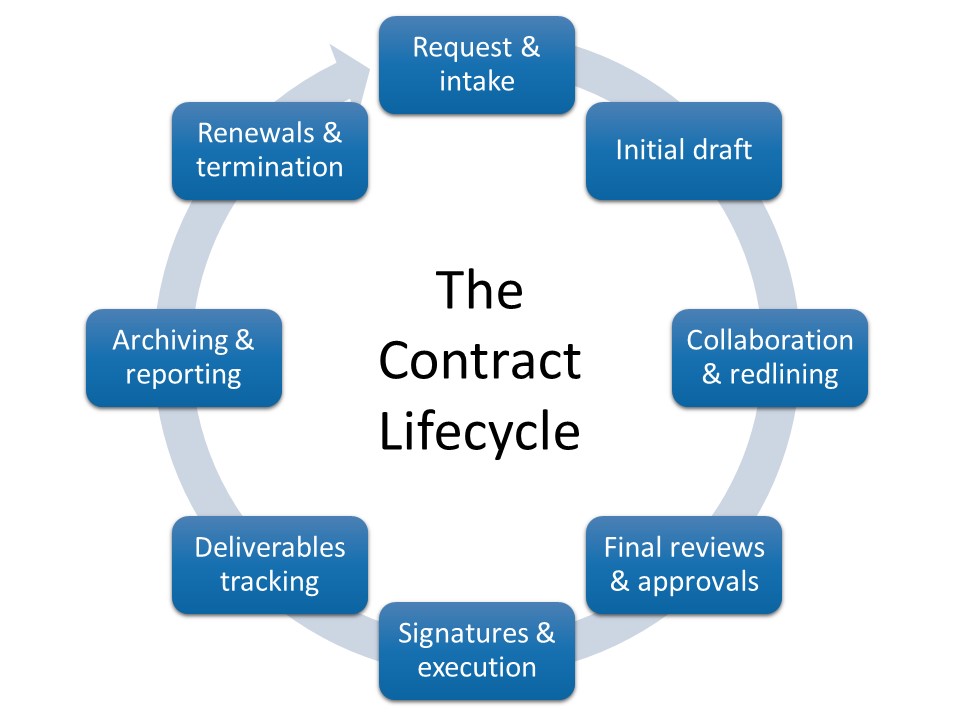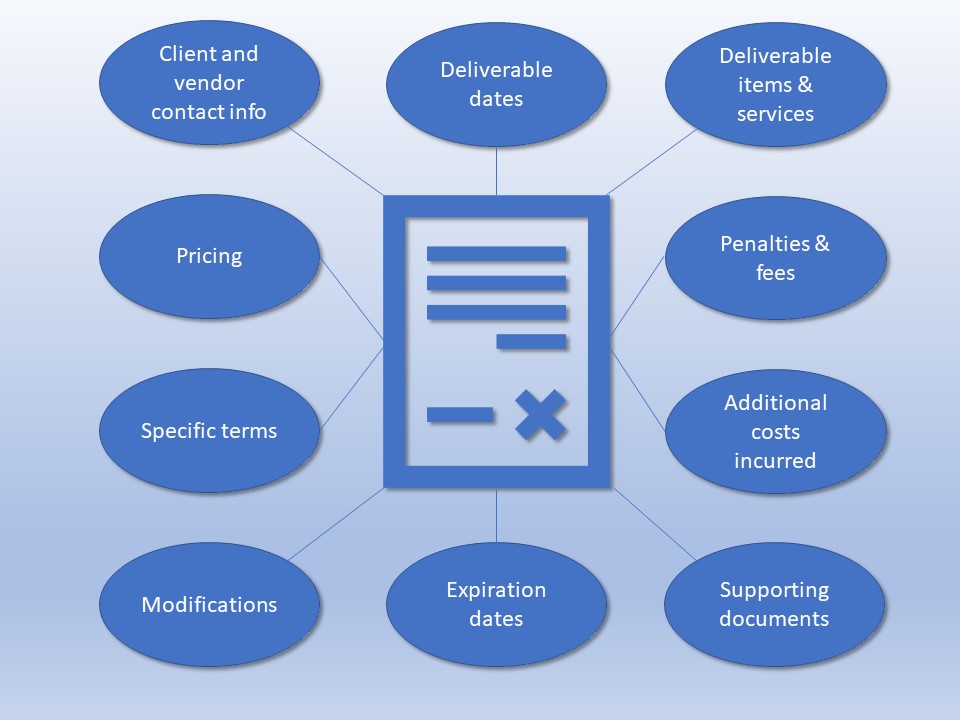What Contract Management Support Services Actually Do (and Why You Need Them)
Contract management support services give legal and business teams expert help across the entire lifecycle. The model most buyers choose today is Contract Operations as a Service, or COaaS. It blends platform configuration, data management, day-to-day execution, and ongoing optimization into a single, flexible service.
The result is faster turnaround, stronger compliance, cleaner data, and continuity even when workloads spike or staff changes.
Quick Takeaways
- Contract management support services handle configuration, data quality, and daily operations so your team can focus on higher-value work.
- COaaS scales up or down without adding headcount, which keeps total cost of ownership predictable.
- Clean, centralized data reduces risk and makes audits, renewals, and reporting straightforward.
- Continuous optimization keeps your CLM aligned with policy and regulation.
- A continuity plan ensures obligations, approvals, and renewals stay on track during disruptions.
Learn how Bayshore HealthCare utilized contract management support services to reduce contract-related emails by 60% and strengthen compliance. Read the full case study here.
What Do Contract Management Support Services Include?
At a high level, contract management support services cover 5 pillars: configuration and setup, data management, day-to-day support, ongoing optimization, and business continuity.
Providers bring a multidisciplinary team that understands legal operations, CLM administration, and contract data. They implement your requirements, operate the system with you, and tune it over time. This approach removes operational drag, reduces manual work, and standardizes how information flows from intake to signature and through obligation management.

This process aligns with the broader contract management lifecycle (CLM), from request and intake to renewals and termination, ensuring each stage runs efficiently and in compliance.
Why COaaS Delivers Meaningful Benefits
COaaS addresses the real bottlenecks that slow cross-functional teams. First, it reduces internal workload. Intake queues get triaged quickly. Templates, playbooks, and workflows stay current. Routine updates and permission changes do not sit in a backlog.
Second, it improves compliance. Accurate metadata, structured clause libraries, and alerts make obligations visible and actionable.
Third, it accelerates turnaround. Automated routing, notification rules, and ready-to-use templates keep agreements moving.
Finally, it improves visibility. Dashboards and reports show cycle time, renewal exposure, and workload by business unit, which helps leaders allocate resources with confidence. Together, these gains raise service levels without expanding headcount.
1. Configuration, Setup, and Implementation
Strong outcomes begin with a CLM configured to your process. Contract management support services translate business rules into working system design. Typical tasks include:
- Template authoring with dynamic fields, clause fallbacks, and conditional logic.
- Approval workflow configuration for authoring, legal review, and business sign-off.
- Intake forms that capture required data at the start to avoid rework later.
- Alerts and notifications for expirations, renewals, and obligation milestones.
- Role-based permissions that protect sensitive agreements and reduce access risk.
- Integrations to eSignature, CRM, ERP, ticketing, and identity providers.
Good implementation balances standardization with flexibility. The objective is consistent authoring and review without slowing the business.
2. Data Management That Drives Trust and Compliance
Data quality determines whether your CLM becomes a source of truth. Contract management support services use AI-assisted extraction with human review to populate and validate key fields.
Teams ingest legacy agreements, normalize counterparty names, align record types, and standardize term and renewal metadata. They set policies for required fields, naming conventions, and taxonomy. They also run recurring data hygiene sweeps to remove duplicates, fill gaps, and correct errors flagged by reports.

These processes ensure that every contract record includes accurate, actionable details like pricing, deliverable dates, expiration dates, penalties, supporting documents, and other key terms.
Clean, centralized data enables precise obligation tracking, faster audit responses, and trustworthy analytics on cycle time, deviation, and risk indicators. It also supports downstream systems that rely on contract terms for billing, renewals, and vendor performance.
3. Day-to-Day Operational Support
Daily execution is where time disappears for many departments. COaaS providers handle the work that keeps the machine running:
- Triage and assignment for new requests, NDAs, and standard forms.
- Admin tasks such as user provisioning, permission changes, and queue management.
- Troubleshooting for stalled workflows, missing notifications, or template issues.
- Report runs and dashboard maintenance for legal leadership and business partners.
- Enablement support for new users and refresher sessions for existing teams.
This steady operational cadence prevents backlogs, shortens response times, and lifts morale. Contract operations staff spend more time on negotiation strategy, policy, and risk review, and less time on ticket chasing.
4. Ongoing Optimization and Continuous Improvement
Business requirements change. Your CLM should keep pace. Contract management support services schedule regular health checks to analyze usage and outcomes. They look for bottlenecks, unused templates, slow approval steps, and fields that users skip.
They then implement improvements, such as streamlined approval paths for low-risk agreements, updated fallback clauses, or revised intake forms that capture data once and reuse it throughout the workflow.
Optimization may also include new dashboards for sales leadership, renewal risk views for procurement, or self-service paths for routine agreements. Continuous improvement preserves speed and compliance as volumes grow or policies evolve.
5. Business Continuity You Can Rely On
Contracts keep operations moving. Any interruption can create exposure. A core advantage of COaaS is resilience. Your obligations, expirations, and approvals remain visible even when teams change, volumes spike, or unexpected events occur.
Providers document runbooks, monitor critical queues, and maintain coverage for key roles. They test renewal alerts, signature paths, and approval routing on a schedule. They also help you formalize contingency plans so the business can execute agreements and meet obligations during disruptions.
How To Evaluate a Partner
The right provider should operate like an extension of your team. Prioritize the following:
- Flexible engagement models that support steady-state and peak periods.
- Human-in-the-loop processes that verify AI outputs for accuracy.
- Proven CLM administration across templates, workflows, permissions, and integrations.
- Legal operations expertise for playbooks, deviation controls, and approval policy.
- Transparent reporting with service levels, backlog trends, and outcome metrics.
- Training and adoption programs that help new users ramp quickly.
Ask for sample dashboards, playbook templates, and a plan for your first 90 days. Confirm who handles intake triage, data hygiene, and template updates. Request a continuity plan that details coverage for vacations, attrition, and surges.
Metrics That Prove Impact
Set clear KPIs before work begins. Useful measures include:
- Median cycle time by agreement type
- First-touch response time for intake
- Percentage of records with complete required metadata
- Number of deviations from standard terms
- Renewal exposure inside 90 days
- Time to resolve approval stalls
Track adoption too, such as self-service NDA volume and active users by department. Regular reviews keep improvements on schedule and align the service with business goals.
Getting Started
Map your current state, including templates, approval paths, intake channels, and integrations. Identify quick wins where contract management support services will relieve the most pressure, such as NDA self-service or renewal data cleanup.
Establish governance for template changes and approval policy. Then set a quarterly optimization plan that pairs measurable goals with a realistic service cadence. This keeps progress visible and ensures the program earns trust across legal, sales, procurement, and finance.
Move Faster with Contract Logix
Contract management support services powered by COaaS help teams move faster, protect the business, and maintain reliable data. Contract Logix delivers expert configuration, rigorous data management, responsive daily support, and continuous optimization, all with a focus on business continuity.
Ready to maximize the value of your CLM investment and reduce operational drag? Discuss your needs to see how Contract Logix COaaS can streamline your contract operations and keep work moving.
Navigate CLM Success With Contract Logix
Download our Data Extraction Product Brief to learn how you can begin to navigate CLM success by automating the hard work using artificial intelligence with one of the best Contract Management Software’s on the market today


